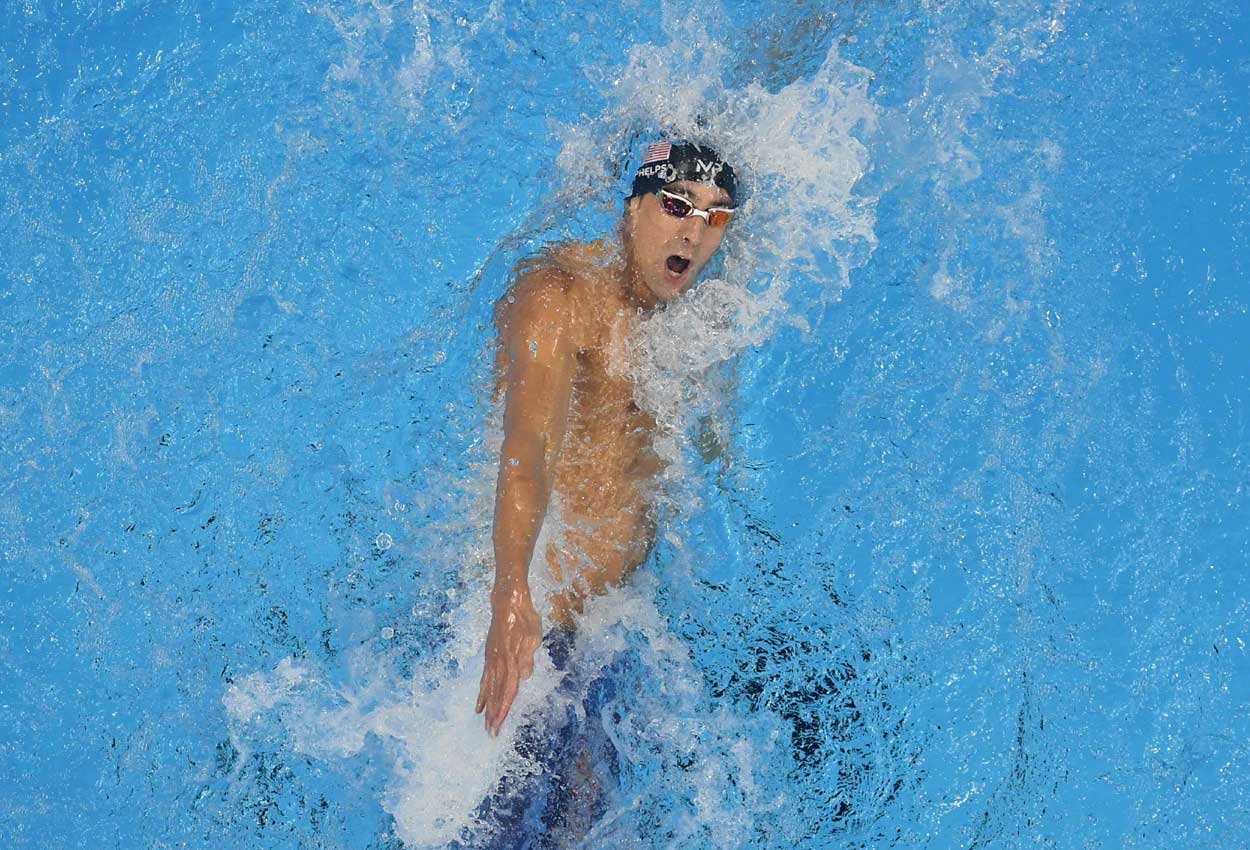Some sounds in sport are invariably linked with athletes. Maria Sharapova’s grunt, the haka of the All Blacks and the “twack” that Michael Phelps makes at the starting block as he slaps his arms behind his back.
With this being the American swimmer’s last Olympics, it was my last chance to watch him race live and see that famous warm-up routine which I’ve viewed countless times on YouTube.
Three straight nights I was at the Olympic Aquatics Stadium in Rio but missed Phelps each time due to a clash of scheduling and was beginning to lose hope of catching the greatest swimmer of this and any generation.
Finally, the Olympic gods answered my prayers and I found myself high up in the rafters for the 200m individual medley final and Phelps was in Lane 4.
He had already won three golds in the preceding days, bringing his tally to a ridiculous 21 golds.
Yet legends in our minds always seem larger than in reality. How could the Phelps of 2016 possibly live up to the zenith of 2008 and his perfect eight golds from eight finals in Beijing?
He is 31, the oldest of the eight finalists, but looked in phenomenal shape and even from my position, silently admonishing myself for not bringing binoculars to Brazil, exuded an unmistakable aura.
This was, after all, an event he had won for the past three Olympics, alongside the 100m butterfly, and his most successful individual event at the Games.
He drew his full 1.93m frame upright, stepped onto the block and hunched over in position.
Then those long arms – they extend 2.03m tip to tip, Vitruvian Man he is not – fell on either side and like cables of flesh, he whipped them across his back.
Crack. Crack. Even from where I was standing – how could I sit – the sound was clearly audible. Imagine what went through his neighbours Ryan Lochte and Kosuke Hagino’s heads when they heard it.
Phelps was one of the slowest off the blocks but made up ground quickly and cruised home in 1min 54.66sec, almost two seconds faster than Hagino, who is nine years younger.
It was simply a majestic swim, so powerful and smooth as he glided through the water. The great ones really do make the impossible seem effortless.
It also served as confirmation that while sportswriters often deal in hyperbole, it was because anything less would not do justice to what I had just witnessed. Here was Neptune in Speedos.
All this made Joseph Schooling’s victory over Phelps the next day in the 100m fly all the more incredible. He beat that guy?
Phelps had to settle for silver but went on to be part of the victorious United States’ 4x100m medley relay team and ended his career with a gold medal.
I missed that race but it did not matter. I had seen, and heard, all that I needed.

This article was first published on August 23, 2016.
Get a copy of The Straits Times or go to straitstimes.com for more stories.














































































6.jpg)

































































































